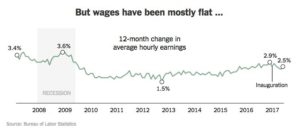In an interview published in Real Clear Future, Senator Ben Sasse (R-NE) compared the digital revolution to the industrial revolution. This thought experiment caught my attention, because I have given considerable thought to that exact same comparison. I disagree with Senator Sasse on many political matters, but this son of rural Nebraska who earned a U.S. history Ph.D. from Yale certainly has one of the keenest minds and one of the most unique perspectives of any current American politician.
Sasse views the current digital revolution as one of the four fundamental stages in human societal evolution throughout history: “You have hunter-gatherers, you have the rise of agriculture, and then you had the rise of the big tool economy: industrialization, urbanization, mass immigration both across the seas and most fundamentally from the American countryside to cities, as you go from about 86 percent of the public working on the farm at the end of the Civil War to almost 60 percent of the public working in big cities by World War II. And then now this new thing, the digital economy, the mobile economy, the knowledge economy, the service economy—the post-industrial economy, fundamentally.” He argues that “Industrialization is the only real analog for this moment.”
How does the trajectory of the digital revolution resemble the industrial revolution? Well, like the Erie Canal and the transcontinental railroads (which received government funding), the Internet started with public subsidization (the government-funded ARPANET project), but later became a chaotic private economic competition that was sometimes bad for workers and consumers, and then veered toward monopolies that carried their own problems and risks. The resulting centralization of power and money allowed the corporate winners of this competition to become a class of “robber-barons” who spent their money to influence the American political system. We may be seeing similar developments today, as tech companies try to avoid regulation and attempt to influence the boundaries of public debate in their own self-interest.
Continue reading What the Reforms of the Industrial Age Can Teach Us About the Challenges of the Digital Age
